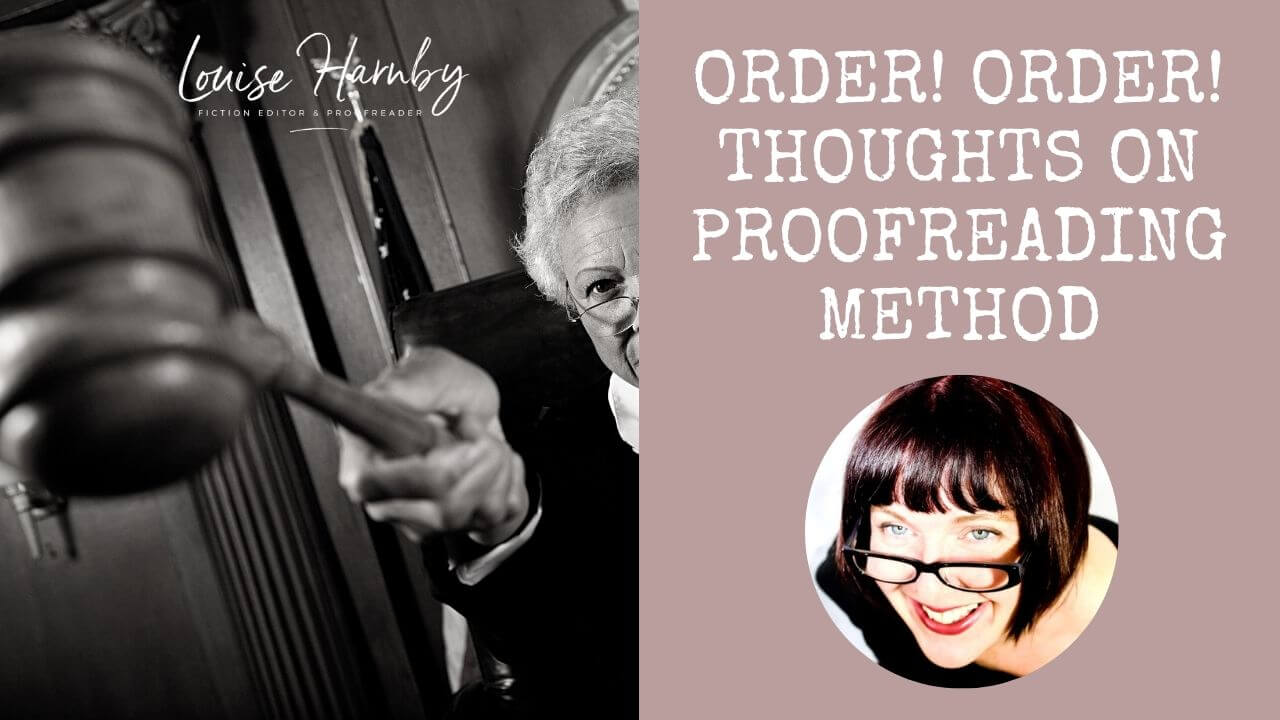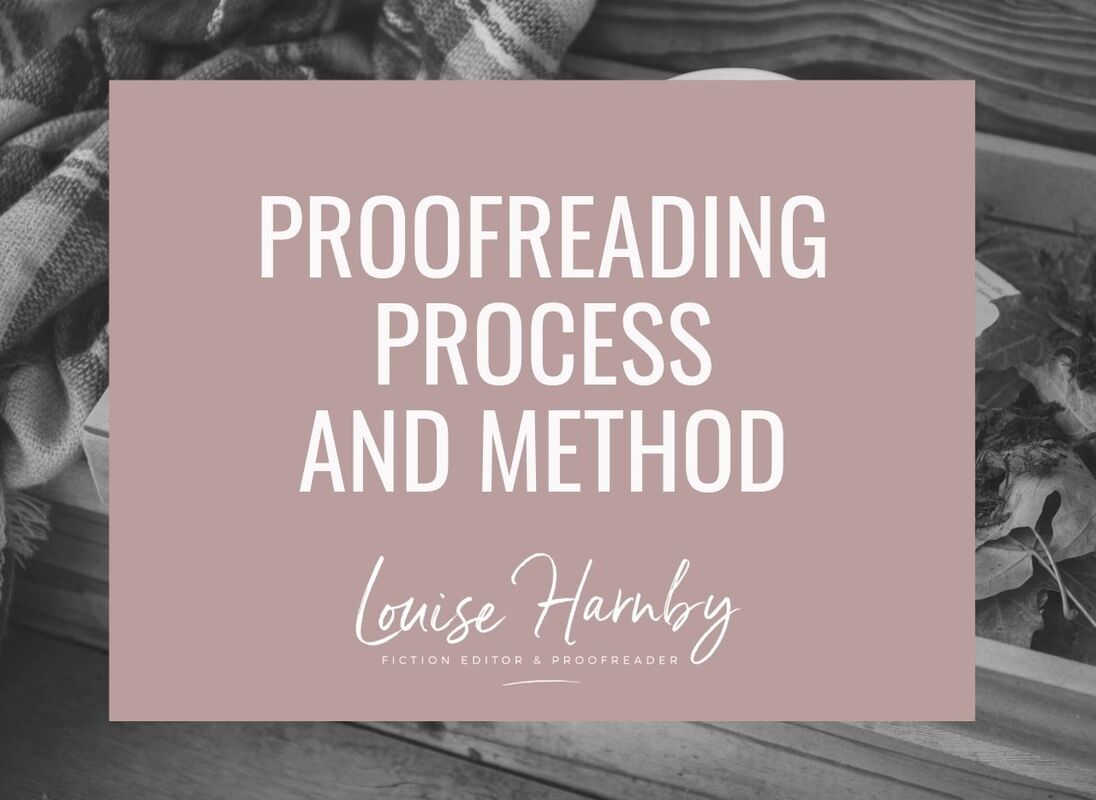|
There's no consensus about the best order in which to complete a proofreading project, but I thought I’d share some tips about how I choose to structure the process.
My structure is based on my work with page proofs supplied by project management agencies and publishers. If you don’t know what page proofs are, take a look at Not all proofreading is the same: Part I – Working with page proofs. As I state in this article:
The above are examples of just some of the issues I look out for – in no way do they represent a comprehensive checklist.
Riveting vs routine I tend think of the tasks involved in proofreading as falling roughly into two categories – riveting and routine. The riveting element is the reading bit – I get paid to read the text word by word, line by line, page by page. I’m engaged with the text and that’s the exciting part of my job. Whether I’m proofreading a short science-fiction novel, a gritty non-fiction piece about martial arts, or a dense tome about pharmaceutical patent law, there’s always something new to learn. For me, this is the best part of the job. The routine element comprises the kind of checks listed above – the word breaks, the running heads, chapter and part title consistency, positioning of page numbers and chapter drops, and so on. For me, this is the dullest part of the job. Hardest vs easiest The riveting element is the hardest part of the job for me – that’s because context is king and because every change I make in the main body of the text could have knock-on effects elsewhere. Furthermore, I need to take a different kind of care not to proofread too fast when I’m working on fiction. I’ve been lucky enough to proofread some absolute corkers – Jonathan Pinnock’s Dot Dash, James Herbert’s The Rats, Jennifer Egan’s A Visit from the Goon Squad, and Donn Pearce’s Cool Hand Luke, to name but a few – and it requires discipline not to get so engrossed in the story that one becomes a reader rather than a proofreader. The routine element is the easiest part of the job for me – that’s because the problems are usually obvious and easy to make decisions about. I might headscratch over whether to leave well enough alone, query, or mark up in the main body of the text, but if a page number is wrong in the contents list, it’s a no-brainer. A mislabelled table needs attending to. Same thing with inconsistent half titles and book titles, missing tables, incorrect running heads, and odd page numbers placed on versos (left-hand pages). Tricky first, easy last? I’m not sure why but when I began my proofreading career I’d carry out many of the routine elements of the project at the end. I imagine that my thinking was something on the lines of “I’ll get the tricky bit out of the way first – then I’ll do the routine stuff and close the project”. That worked just fine for a while and I carried on that way until one of my PMs contacted me with some feedback that said I’d done a great job with the main text but could I take care in future to double check that the book title and half title matched? I’d missed something so ridiculously obvious – something that stuck out like a sore thumb. How could that have happened? It's on my checklist. I was sure I'd done it; I'd just not seen the error. I apologized profusely (she forgave me!). Then I grabbed a coffee, sat back, and considered my method. The routine bit is supposed to be the easiest bit – it’s supposed to be the bit I can’t get wrong, but it’s also the dullest. Was that the problem? The mindset of project closure … I came to the conclusion that when I’ve finished the riveting part of my job, my brain goes into project-closure mode. The problem is that the routine element can take me an hour, even several hours if the project is large. So if I’ve finished reading the text, my brain’s saying, “You’re nearly done”, when in fact that’s far from the truth – there’s still some really important and routine tasks to complete that my publishers expect as standard. I was doing what for me was the dullest and easiest bit of the job when my brain was at its least attentive. The risk of a miss was higher given this mindset. I therefore decided to revise my method – I’d do the bulk of the routine work at the beginning of the project and commence the fun bit afterwards. The decision reminded me of when I was a kid and my mum would tell me that I needed to eat my green veggies before I stuffed my face with a third helping of her rather excellent roast potatoes! Scouting out the lie of the land … My decision had some unforeseen benefits. Few of my clients pay me for more than one pass. And yet by doing the routine work first I give myself the opportunity to get an overall of sense of the book – its layout, its various different elements, its themes, its overall structure – by working through my checklist one step at a time before I start the actual read itself. As I first check every single page number I’m moving through the book, one page at a time. Then I go back to the beginning and do the same with my running heads. Then back to the beginning again to check my lists of tables, figures and contents. Then back again to check the chapter drops … and so on and so forth, all the time building up a picture of how the book works. And each time I go to the beginning and start a new check I'm doing a tiny pass, over and over again. I like this method because it allows me to scout out the lie of the land. It often means I pick up on little oddities that I can make a note of to watch out for once the actual reading process begins. But, more importantly, my mindset is in start-up mode and that’s exactly where I want it to be when I'm attending to the more mundane aspects of the project. I don’t have to worry that my miss rate will be higher by the end of the riveting bit as a result of boredom, precisely because it’s the riveting bit, not the boring bit. Something to test? I still go back and do some double checks when I've finished the riveting stage. And I like to take a look at each page one final time and review any notes that I was given by the copy-editor or PM – just to reassure myself that I've done what I was asked to do. But, broadly speaking, I've reversed my method. My method may not be your method because you may be wired differently to me. But if you are the sort of person who does most of your routine tasks at the end, and you find yourself in project-closure mode a few hours ahead of schedule, don't be afraid to consider testing a revision of the order in which you do things. You might just find your new process works better for you.
Louise Harnby is a line editor, copyeditor and proofreader who specializes in working with crime, mystery, suspense and thriller writers.
She is an Advanced Professional Member of the Chartered Institute of Editing and Proofreading (CIEP), a member of ACES, a Partner Member of The Alliance of Independent Authors (ALLi), and co-hosts The Editing Podcast. Visit her business website at Louise Harnby | Fiction Editor & Proofreader, say hello on Twitter at @LouiseHarnby, connect via Facebook and LinkedIn, and check out her books and courses.
4 Comments
|
BLOG ALERTSIf you'd like me to email you when a new blog post is available, sign up for blog alerts!
TESTIMONIALSDare Rogers'Louise uses her expertise to hone a story until it's razor sharp, while still allowing the author’s voice to remain dominant.'Jeff Carson'I wholeheartedly recommend her services ... Just don’t hire her when I need her.'J B Turner'Sincere thanks for a beautiful and elegant piece of work. First class.'Ayshe Gemedzhy'What makes her stand out and shine is her ability to immerse herself in your story.'Salt Publishing'A million thanks – your mark-up is perfect, as always.'CATEGORIES
All
ARCHIVES
July 2024
|
|
|
|

















 RSS Feed
RSS Feed





